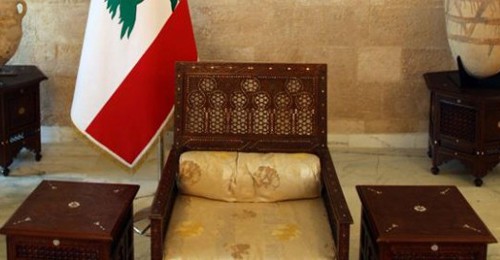By: Ya Libnan Editorial Board
Introduction:
Lebanon, a country grappling with political instability, is in dire need of a functional and effective presidential election system. Article 49 of the Lebanese Constitution, which mandates the election of the President of the Republic by a two-thirds majority of the votes in the Chamber of Deputies, has come under scrutiny for its unfairness and its role in hindering the election process. While this article applies to the presidency, it does not extend to the election or selection of other top posts such as the Speaker and the Prime Minister. This disparity raises concerns about the overall fairness and functionality of the system, obstructing the crucial process of appointing a new president. In this article, we explore the shortcomings of Article 49 and advocate for reform to ensure Lebanon can elect a president and move towards political stability.
- The Unfairness of Article 49: Article 49 of the Lebanese Constitution establishes an arduous requirement for electing the President of the Republic, demanding a two-thirds majority vote in the Parliament .While the intention may have been to encourage consensus and prevent the dominance of a single political faction, this provision has proven to be a major hurdle in the election process. It sets an unreasonably high threshold, making it challenging to achieve the required majority and subsequently leading to repeated failures in electing a president.
- Disparity with the Speaker and Prime Minister: A significant flaw in Lebanon’s presidential election system is the lack of uniformity in the selection process for top posts. While the President requires a two-thirds majority, the Speaker is elected by a simple majority vote, and the Prime Minister is designated by the President based on a simple majority decision of the members of the parliament . This disparity creates an imbalance of power, favoring certain political factions and impeding the ability to elect a president who can effectively govern and address the country’s challenges.
- Hindrance to Political Stability: Lebanon’s ongoing struggle to elect a president has had severe repercussions on the country’s political stability. The presidency is a crucial institution that provides leadership and a unifying force in times of crisis. The prolonged vacancies in this position have resulted in a power vacuum, weakening the state’s ability to address pressing issues, such as economic instability, sectarian tensions, and social unrest. Article 49’s failure to facilitate the election of a president exacerbates these challenges, prolonging the political stalemate and preventing the country from progressing towards stability.
- The Need for Reform: Given the shortcomings of Article 49 and its impact on Lebanon’s political landscape, it is essential to pursue reforms to the presidential election system. The requirement of a two-thirds majority should be revisited to strike a balance between consensus-building and ensuring a functional electoral process. The adoption of a simple majority vote, similar to the selection process for the Speaker and the Prime Minister, would allow for a more inclusive and efficient election. Such reform would promote political stability and enable the country to move forward with the crucial task of appointing a president capable of addressing Lebanon’s challenges.
Recommendation :
Ya Libnan Editorial Board calls on Speaker Nabih Berri to urgently call for a parliament session to amend article 49 of Lebanon’s constitution that outlines the presidential election system
Article 49 of the Constitution, has proven to be an obstacle to the election of a president and the subsequent achievement of political stability. The disparity between the requirements for electing the President, Speaker, and Prime Minister further exacerbates the problem. Reforming the system by revisiting the two-thirds majority requirement and aligning it with the simple majority vote used for other top positions would be a significant step towards ensuring a fair and functional election process.
It is imperative for Lebanon to address these flaws and institute reforms to elect a president who can guide the country towards stability, unity, and progress.


Leave a Reply
You must be logged in to post a comment.